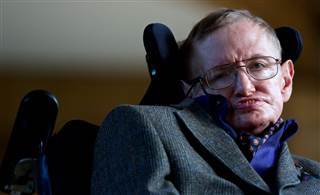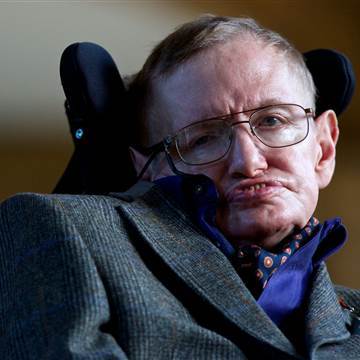A black hole created in a laboratory has shown evidence that one of Stephen Hawking’s most important predictions about the cosmic phenomena may hold true.
The cosmologist first proposed four decades ago that electromagnetic radiation can escape, contributing to the shrinking of black holes. The idea upended the belief that nothing could escape from a black hole.


Jeff Steinhauer, an experimental physicist at the Technion-Israel Institute of Technology in Haifa, detailed in the journal Nature how he was able to create an artificial black hole that emanated artificial “Hawking radiation.”
Proving Hawking’s theory is difficult because it’s nearly impossible to observe small amounts of radiation in an actual black hole.
In a laboratory environment, Steinhauer created an acoustic black hole using chilled atoms inside a test tube just a few millimeters long, resulting in entangled pairs of sound particles, which physicists refer to as phonons.
The phonons, which were inside a small amount of liquid, were then sped up using a laser, causing them to move faster than the speed of sound.
As one member of a pair moved past the event horizon he created, which is the point of no return, the other particle managed to move in the other direction.
Steinhauer said he conducted the experiments 4,600 times and took photos of the results, which showed “correlations between the densities of atoms that were an equal distance from the event horizon but on opposite sides,” according to Nature.
While Steinhauer said it supports the theory of entanglement and the quantum fluctuation of particles that would cause Hawking radiation, some outside experts who have weighed in on the study say they want to see more evidence.
Ulf Leonhardt, a physicist at the Weizmann Institute of Science in Rehovot, Israel, told Nature “this is a pioneering paper” but said the evidence of entanglement seemed incomplete.



![[Interview] The Secret Behind the Rich, Powerful Sound of](https://loginby.com/itnews/wp-content/uploads/2021/06/1624340167_Interview-The-Secret-Behind-the-Rich-Powerful-Sound-of-238x178.jpg)



